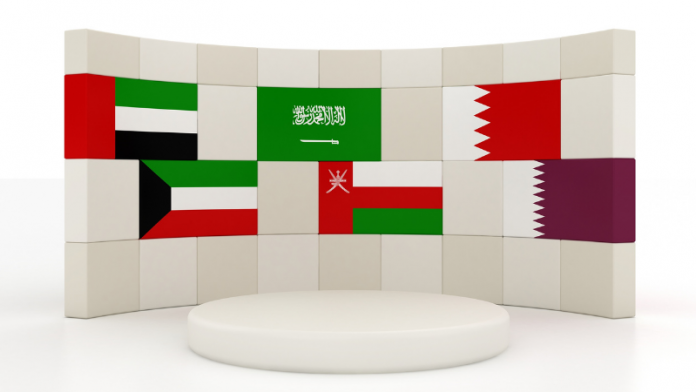According to the latest research by leading consumer intelligence platform, D/A, owners of Sila, an Arabic-native, AI-enabled consumer intelligence platform, despite a general decline in net positivity across all global markets, the GCC’s Arabic speakers remained mainly immune to many of the global agitators regarding business, economy and employment confidence.
The data, which is based on algorithmic AI analysis of over 100 million Arabic social media posts, was highlighted in the December 2021 Sila Consumer Sentiment Index (CSI) report, which was released today, Tuesday 11 January and revealed that the GCC remained relatively immune to the key issues affecting consumer sentiment on a global level.
Overall, GCC consumer confidence in December declined 1.2%, down to 65.3% from 66.5% in November and 66.3% in October. These modest declines are attributed to global dynamics, including inflationary pressure on consumer spending, uncertainty around variants of COVID-19 and the resulting impacts on daily life, and government support for the economy via maintained spending and reforms.
Business confidence has sustained a more considerable setback of almost 2% month-on-month, from 61.3% in November to 59.5% in December. However, it is still registering net positivity and trending above pre-pandemic levels.
From an economic perspective, macro/government intervention in GCC economies saw a 3.7% increase in confidence in December, marking a two-year series high in economic growth sentiment, a significant consumer confidence indicator.
Consumer confidence around employment declined by 1.3% month-on-month to 81% in December and 1.5% below October’s reading of 82.5%. This trend still presents a significant shift from the pre-pandemic level of 87.9% recorded in February 2020 and the 86.1% noted in June 2021, indicating a more inconsistent recovery concerning this marker.
Paul Kelly, the Managing Partner of D/A, said: “We have seen a clear uptick in consumer confidence from an economic perspective. The extensive vaccination programme across the region has undoubtedly had a positive impact, and consumers have become more optimistic about the future economic situation in the region. This confidence does, however, have to be tempered by the slight declines in consumer confidence surrounding business and employment in the GCC, as result of the ongoing challenges of the pandemic.”
Overall consumer sentiment in Bahrain stands at 59.7% for December, up on November’s 56.2%, which marks a growth pattern following a lengthy period of consistently flat outlook. The 3.5% increase comes at a time when Bahrain’s economic development trends have not experienced a major surge since the second half of 2020.
Confidence in private enterprise rose in net positivity from 64.6% in November to 67.2% in December, a steady increase toward the May 2021 high of 73.4%. This period was punctuated mainly by months of either decline or no growth.
The economy, which dropped from 66.1% in November to 65.9% in December, is subject to more external factors in Bahrain than in other parts of the Gulf. As a result, it has undergone only a slight decline in consumer sentiment.
Consumer sentiment towards employment had increased significantly in December to 47.7% from November’s 39.8% when Omicron initially began to exert pressure on the country’s job market.
For the first time since July 2021, Qatar is experiencing a drop in the confidence index, from 55.3% in November to 52.2% in December. The decline has been spurred by the globalised nature of the country’s aviation sector; however, offset by energy-related economic gains.
“Although the latter sector may be more resilient, non-hydrocarbon are more prone to Omicron-driven declines and greater fluctuations in consumer sentiment, which is to be expected when it comes to smaller GCC economies like Qatar’s,” added Kelly.
Business confidence has maintained a downward trend, enduring a decrease from 43.6% in November to December’s significantly lower 38.9%, which is a concerning trend considering the country had seen only moderate fluctuations in private enterprise outlook in 2021
Consumer perception of the economy – including the government sector – is moving in the opposite direction, increasing for the fourth month in a row. From November’s reading of 44.6% to 48.1% in December, this 3.5% boost positions Qatar just off the net positive mark of 50% and underscores a growth trend that outstrips pre-pandemic levels.
Confidence in employment has remained essentially flat – from 76.2% in November to a negligible difference of 0.2% in the December reading (76%), a trend that is expected to endure.
In contrast, Oman has experienced a consistently flat rating in overall consumer confidence, oscillating between the December figure of 71.7% and the June figure of 71.3%
Driven mainly by external factors, the Omani economy has been slower to open following the COVID-19 pandemic than other GCC countries and has been negatively impacted as a result.
Business confidence fell to 60.8% in December from a value of 62.4% in November. While the index remains net positive overall, this most recent regression does not signify a meaningful change in readings, as sentiment has remained largely flat since March 2021.
Consumer confidence toward Oman’s economy is contingent upon the petrochemical and hydrocarbon markets, structural issues in the economy and a considerable budget deficit that tends to weigh on sentiment. However, December’s rating of 50.2% represents a significant step up from November’s 45.8%, itself a decline of over ten points from the 55.9% reading in October.
The employment confidence index stood at 81.8% in December. Despite waning off November’s 81.2%, confidence levels in the job market are sustained in the relatively comfortable 80s, following an extraordinary reading earlier of 92.8% in June (already well above the 88% recorded just before the pandemic).
“The drop in figures experienced after the mid-year highs has mirrored the declining confidence in the economy and the private sector, which has been driven largely by external factors. Overall, this apparent nosedive in values should not be noted as excessively concerning, as sentiment remains net positive,” added Kelly
“Consumers (expatriates in particular), however, are potentially more guarded, reflecting apprehensions about their employment prospects moving forward,” he concluded.
The Sila Consumer Sentiment Index provides various tools to aid in consumer intelligence such as brand perception tracking, sentiment and audience analysis, demographics, trend and topic analyses and more. The sentiment models inside Sila are a result of proprietary Arabic-dialect native, natural language processing models.






